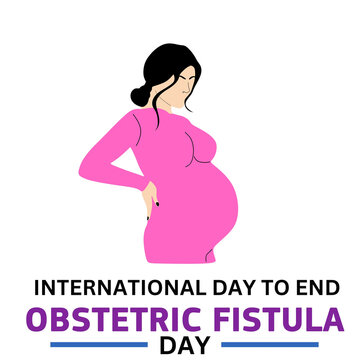May 23 is the United Nations’ (UN) International Day to End Female Genital Fistula. This is a day which promotes action towards treating and preventing Female Genital Fistula. This year’s theme is “Women’s rights are human rights! End fistula now!” To mark this year’s celebrations, Flying Doctors Society of Africa in partnership with the Ministry of Health, UNFPA, KNH, Amref Health Africa, Beyond Zero Campaign, and Safaricom Foundation amongst other stakeholders are launching free fistula treatment at the Kenyatta National Hospital.
Simply defined, Female Genital Fistula is a birth injury caused by prolonged and obstructed labour without access to timely, quality medical treatment. The obstruction causes a hole between the birth canal and bladder and/or rectum leaving women with incontinence problems. Female Genital Fistula is a maternal health concern that needs to be prioritized as an element of reproductive health services. Fistula is likely to be prevalent in informal settlements as the costs of emergency obstetric complications treatment are too high and often unavailable at local health facilities. Harmful cultural practices such as Female Genital Mutilation (FGM) and teenage pregnancies also increase the susceptibility of suffering fistula. Failure to offer medical services to prevent and/or correct fistula is a violation of women’s reproductive health rights as enshrined in the Constitution of Kenya 2010.

Statistics by the World Health Organization indicate that two women get Female Genital Fistula per 100 births resulting in approximately 3,000 new cases annually. Of the new cases, only 7.5% of the patients have access to medical and surgical treatment. This leaves a majority living with the medical, psychosocial, and economic effects of the illness. This year, the numbers are likely to increase due to the large number of women unable to access proper reproductive medical care during birth.
With the ongoing coronavirus pandemic, many women and girls are likely to suffer from the injury. Following the high number of teenage pregnancies recorded during the pandemic, an increase in fistula cases is anticipated. This is because adolescent mothers face a higher risk of obstructed labour as their bodies are not developed enough to undergo labour safely. The curfew and frequent lockdowns are likely to dissuade women in labour from seeking medical assistance especially at night. This puts them at risk of suffering fistula injuries. The lack of awareness within the community further dissuades women with fistula injuries from seeking medical help.
Further, overburdened healthcare systems will also put more women and girls at risk of Female Genital Fistula. Fistula repairs have widely been suspended as they are not deemed as emergencies, and hospitals have diverted resources to care for patients with COVID-19. It is therefore paramount that new strategies will be required in the post-COVID-19 recovery period to address the expected backlog of cases.
Female Genital Fistula patients are often unable to lead regular lives due to stigma within the community if corrective treatment is not sought. Further, the impact on their quality of life is severely affected. Fistula patients are often unable to actively participate in family and community life. Majority are left living with the medical, psychosocial, and economic effects of the illness. In fulfilling its obligation of providing quality reproductive health services, the Government must be deliberate in its actions to end Female Genital Fistula. While private stakeholders such as NGOs and corporate organisations make efforts in creating awareness on fistula and providing free medical services, the Government needs to intensify actions towards ending Female Genital Fistula.
Financial investment in maternal health; capacity building of health care providers; development and implementation of maternal health policies are ways in which the government can work towards ending Female Genital Fistula. Domestication of international guides on Female Genital Fistula and other maternal health standards will also go a long way in ending the occurrence of the injury.
Further, enhancing partnerships and collaboration with NGOs will ensure that the government effectively addresses fistula. Dr. Ademola Olajide, the UNFPA Representative in Kenya states that, obstetric fistula is a sensitive indicator of the quality of sexual and reproductive health services and a severe assault on quality of life of those unfortunate to live with a fistula. He further states that UNFPA remains committed to supporting the Government of Kenya in all efforts to eliminate obstetric fistula and other maternal morbidities.
In so doing, not only will Kenya eradicate Female Genital Fistula, but she will have made an important step towards achieving the Sustainable Development Goals and realizing the promise of the Beijing Declaration and Platform for Action as well as the Programme of Action of the International Conference on Population and Development. Both policies are focused on fighting for women’s rights, including the sexual and reproductive health.
Beverly Mumbo, is an advocate of the High Court and a reproductive rights and gender based violence advocacy expert.
Publication Link- https://nation.africa/kenya/blogs-opinion/blogs/end-female-genital-fistula-3412148

